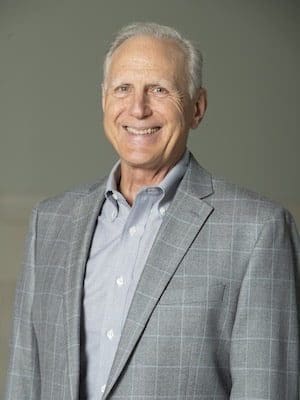By John D. Pierce
To disclose a bias: I highly regard R. Kirby Godsey as an innovative leader and deep thinker, and seek his wise counsel at times of strategic decision making. For 27 years he led Mercer University as its president before becoming chancellor in 2006.
 While gifted in many ways, Godsey is at his core a philosopher with a thoughtful Christian orientation. So not surprising, his upcoming book, The God Particle: God-Talk in a “Big Bang” World, may be the most philosophical of his five published works — though each reveals that trait.
While gifted in many ways, Godsey is at his core a philosopher with a thoughtful Christian orientation. So not surprising, his upcoming book, The God Particle: God-Talk in a “Big Bang” World, may be the most philosophical of his five published works — though each reveals that trait.
Many readers find his theoretical thinking to be insightful and helpful while others question his orthodoxy (especially if such orthodoxy is narrowly defined and defensively held).
Smaller (though not shallower) than his earlier books — that include Is God a Christian? and When We Talk About God, Let’s Be Honest — this volume is a reworking of Godsey’s Mountain Top Lectures given in North Georgia in 2015. The book will be available in September from Mercer University Press.
As stated in the Preface, Godsey advocates for allowing scientific advances (such as discovery of the elusive particle that gives mass to all things in the universe) to inform conversations about faith — and to reshape theological presuppositions.
“Religious truth and scientific truth are ultimately coherent,” Godsey writes. “…Not all revelation is past tense.”
Ultimately, said Godsey, his lectures-turned-book is “mostly a celebration of mystery.”
Indeed, one must embrace mystery in order to appreciate Godsey’s contributions — which offer fresh ways of viewing the world (including humanity’s place) rather than easy, clear, defensible answers to all of life’s questions.
Both cosmology and theology, he states, “begin with the siren of mystery.”
Godsey notes that most scientists are not victims of scientism and most religious persons are not victims of fundamentalism, yet there are those in both camps who “abhor uncertainty.”
As a helpful reminder, Godsey warns against misguided efforts that confuse the roles of science and faith.
“Confusing religious stories with science leads to bad religion and bad science,” he writes. “…When faith seeks to nullify the facts, those actions are both misguided and arrogant.”
Godsey emphasizes the relatedness of all that exists — offering a perspective that views God and humanity in terms of verbs rather than nouns.
“Everyone of us is scientifically, ontologically, and theologically related to everything else,” he affirms.
As always, Godsey testifies to being a Baptist and then offers statements that cause some Baptists to question his membership in both the denomination and the Kingdom of God. Such is the case when he addresses the resurrection — which he states cannot be established as historical fact — and other doctrines.
But Godsey’s pressing concern is to note that inflexible dogma — that sees science as an enemy — is costly from the standpoint of faith. His point is exemplified in the growing number of “nones” (who claim no religious affiliation) and “dones” (who no longer hold to the religious brand of their upbringing).
“It may take 20 years to grow a Baptist and 20 minutes to lose one to no religion at all,” he writes. “It happens when a person cannot make his religion square with what else he knows.”
Godsey’s insights may be most helpful to those (if they are willing to hear and heed) who confuse a firm faith with a mind that is set in concrete regarding all that is true. Even if one disagrees with Godsey — as many Christians will surely do in his considerations of the existence and nature of God — his reminder (like that of St. Paul) is needed: we see through murky glass.
Godsey, who confesses to being both Baptist and “a thoroughgoing universalist,” commends myth as a way of understanding realities. He notes that no person lives by reason alone.
“When speaking of God, myth and metaphor are the very best we can do,” he writes — warning of destructive ways that often emerge when “myths harden into creeds and certainties.”
Which brings Godsey back to his affirmation of relatedness.
“The more you come to know yourself, through science or religion or psychology, the more you begin to discern your essential relatedness to all beings,” he writes. “Every other person is also a transcendent being to whom we are related.”
And he adds: “Both science and religion are leading us there.”
Some might conclude that Godsey is a heretic. It won’t be the first time.
If so, he at the least a helpful heretic — one who reminds us to avoid setting at odds those things that aren’t actually in conflict.
Godsey stands opposite from those strident voices today who create unnecessary division — even battles — over issues of scientific discoveries and religious dogma. He advocates for a less defensive position that allows for various forms of truth to inform rather than restrict each other.
His is a better way.
Director of the Jesus Worldview Initiative at Belmont University in Nashville, Tennessee and former executive editor and publisher at Good Faith Media.

